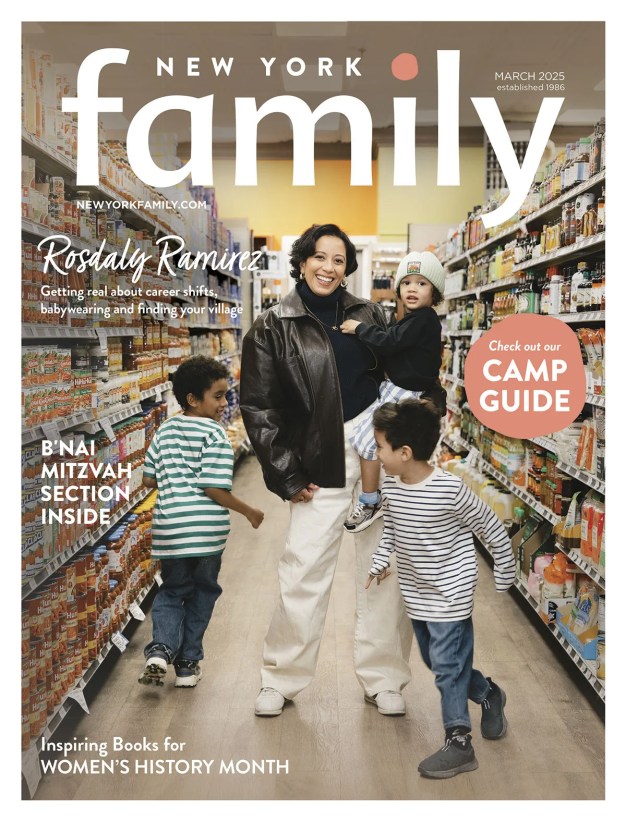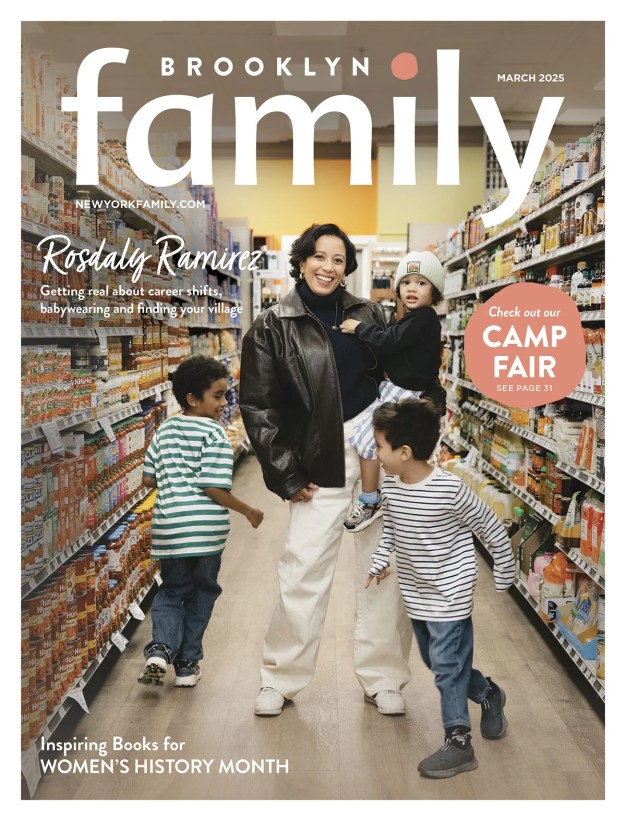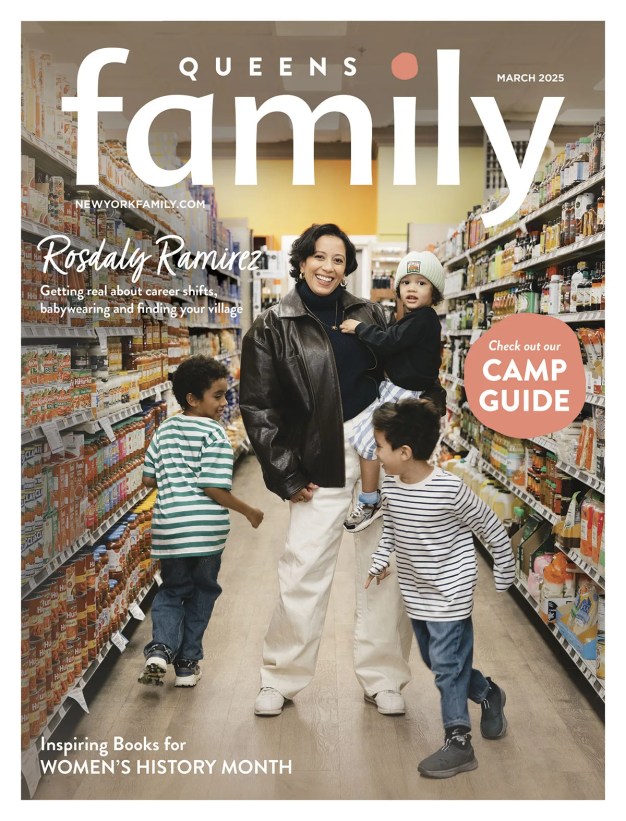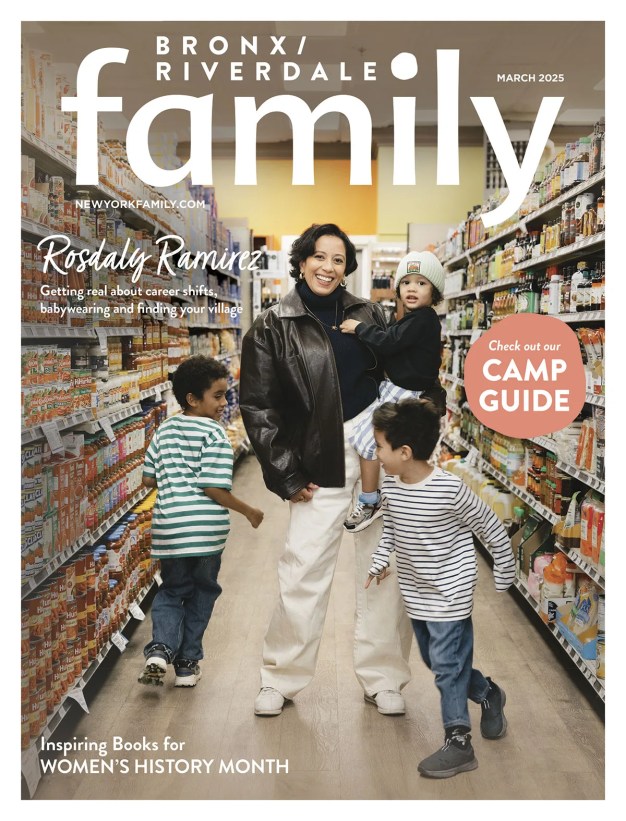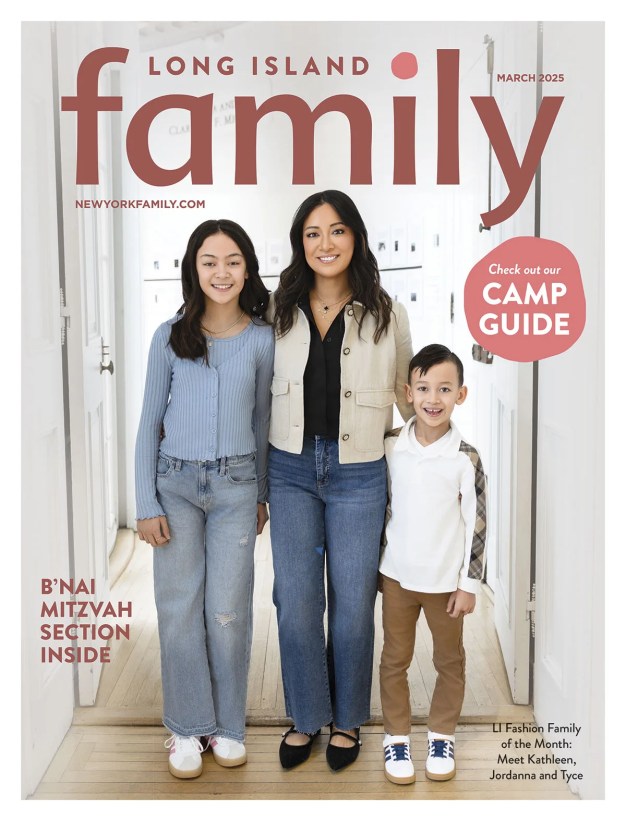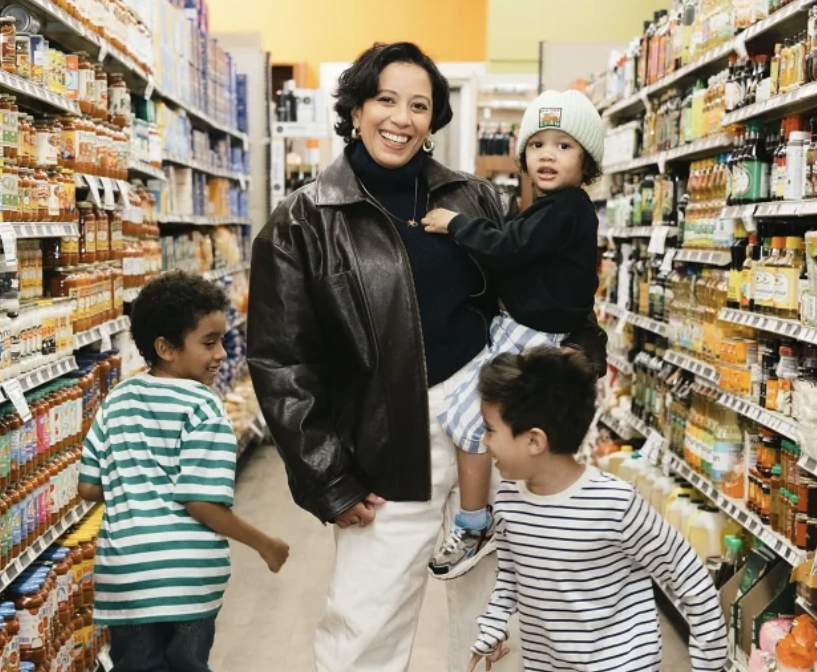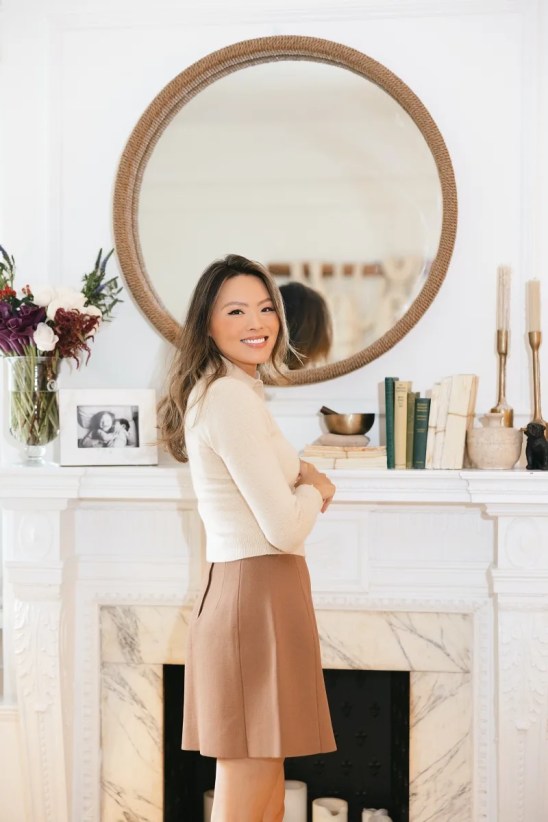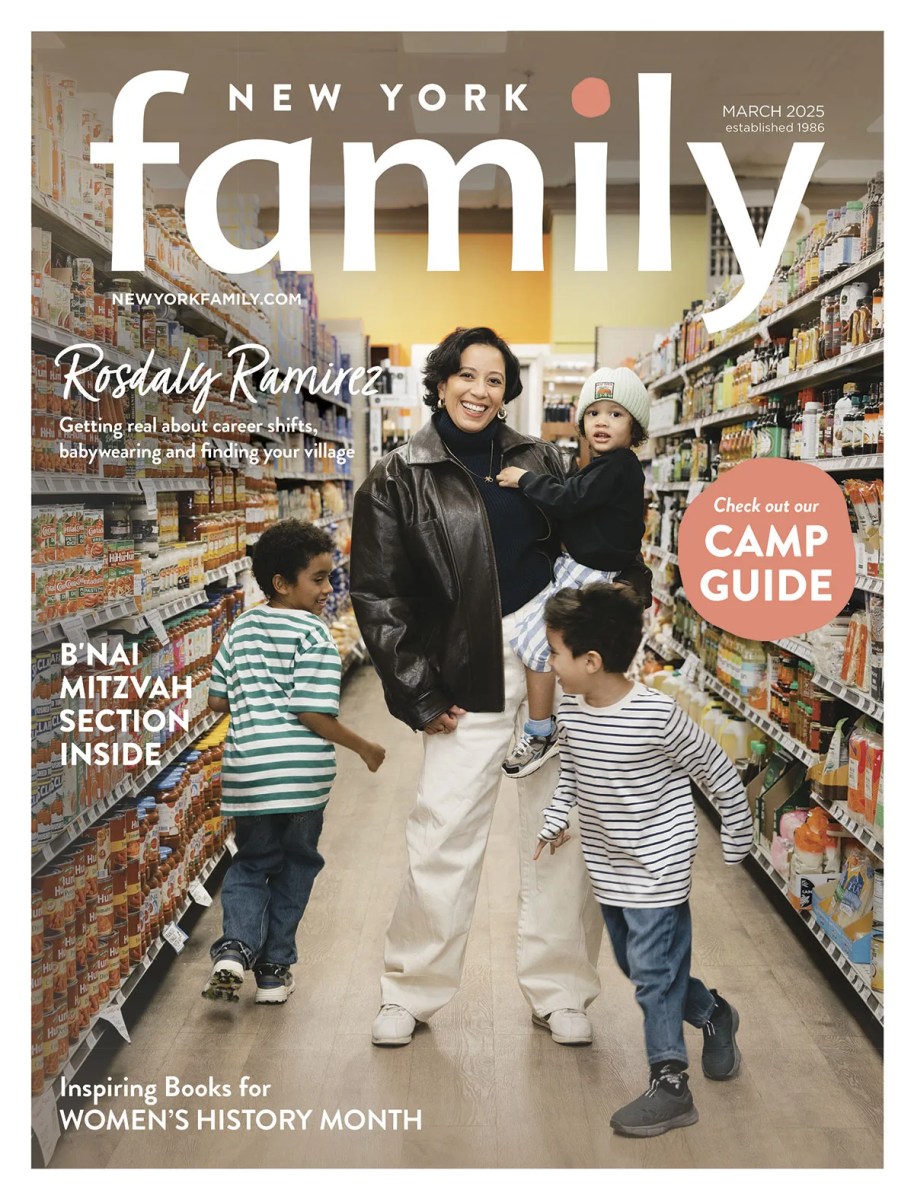
At a restaurant in Little Italy, a back room fills with pregnant New York women of various ages, sporting full bellies beneath stylish maternity wear. Some arrive alone while others are accompanied by spouses and partners, but all are on the verge of becoming first-time parents of twins. And all are here for a Twiniversity crash course on raising multiples.
At the helm of this intimate and unconventional classroom stands Natalie Diaz—Twiniversity founder and instructor, Manhattan Twins Club director, and newly minted author of an ultimate What To Do When You’re Having Two handbook.
Today, this trendy mom of twins is styled in a turquoise top with funky gold earrings peeking out from her dark hair, and she’s leading a class for those who have already taken her introductory course. Along three long rows of tables at the restaurant, there’s a set of silverware at each seat in anticipation of the hot meal that will be served and an oversized bag of parenting goodies. Some students have yet to arrive, so a handful of gift bags remain unclaimed.
“Pray that the other people don’t show up,” Diaz jokes. “Because that’s more poaching that you can do.”
Diaz comes across as a wise older sister who can be counted on for support and the occasional wisecrack. She speaks to the group of expectant moms before her in her signature relaxed style, with a tongue-in-cheek habit of referring to their future children as “monkeys.” Turning the conversation to bathing new babies, she assures that the often exhausting task is not necessary to do daily.
“They aren’t working in the coal mine,” she says. “They aren’t getting that dirty.”
Over the course of three and a half hours, Diaz runs through the gamut of twin-centered topics, like tandem breastfeeding, diaper changing, hired help—even the logistics of travelling by air with two. Her advice for hitting the tarmac is similar to her take on much else of family life: “Don’t be afraid to do things just because you have twins,” she says.
Then it’s show time. Diaz dresses, undresses, changes, feeds, and burps two plush bunnies in onesies. Throughout the demonstrations, the night is filled with countless bits of insight that, as a parent of 8-year-old boy and girl twins, Diaz once learned the hard way. She informs the class, for example, that the disposable “dog poop” bags sold at Home Depot are exactly the same as the disposable “dirty diaper” bags sold at high-end baby stores—only much less expensive.
At the end of the night, Diaz urges students to contact her if they ever run into trouble or find themselves in the midst of a meltdown—a rare (but very welcome) invitation from any instructor, let alone one for a single session class. “You have me ‘til they go to college,” she reassures.
A week later, at a cozy café on Broome Street, Diaz tells us more about her journey of motherhood, her impact on the Manhattan Twin Club, the conception of Twiniversity, and how What To Do When You’re Having Two came to the fore. As witty and effervescent in casual conversation as she is in class, Diaz is hard not to love.
Diaz never planned to be a writer, a teacher, or a prominent voice of the twin community. But everything changed when, after years of struggling to conceive, a visit to the doctor brought the news that she was pregnant with two.
“Since we’d been trying to conceive for five years, I had this very detailed vision of what I wanted my parenting life to be,” the native New Yorker says. “And then, when we found out there were two, it was like a train crash.” She worried how she and her husband would handle the added strain on everything, from their wallets to their tiny apartment.
Diaz searched for resources online and discovered the Manhattan Twins Club, a city-centered support group for twin parents (which also has many resources and listings on its website), and attended a meeting where she heard a volunteer mom speak about her twins’ smooth delivery. So when Diaz went on to endure a difficult premature labor and subsequent battle with postpartum depression, she found herself ill-prepared—her own experience was nothing like the one she heard about in that meeting.
Diaz decided that there needed to be a change in the Manhattan Twins Club meetings—expectant moms should hear a range of viewpoints and be ready for whatever could be thrown their way. She began volunteering there and restructured the meetings, about nine months after she gave birth, so that the panels were comprised of diverse voices.
Diaz’s course as a twin community leader changed again one cold, miserable night in 2009, when no panelists showed up to speak at a meeting. Diaz stepped up and ran the entire session, and a woman approached her after with praise—and the suggestion that she put all her knowledge into her own book. That was the ultimate “Aha!” moment. That night, she went home and got to work, knocking out the first chapter and the index of topics, covering everything from strollers and car seats to sleep schedules and maintaining a healthy marriage.
“I wanted to put a spin on twin parenting and twin births that was hopeful and joyful,” she says. “When you’re reading most books about twins, they’re very medically heavy, and they don’t always have a very positive nature to them.”
Instead of penning the rest of the chapters right away, however, Diaz wanted to gather more research from the frontlines of twin parenthood—and Twiniversity was born. The community has two arms: a national online platform for parents of multiples across the country and a local series of classes for those here in NYC. Through building the community and teaching her own classes, she gleaned the questions and concerns that expectant parents truly grapple with. When she finally felt ready, she found instant success in finding a literary agent.
Today, Twiniversity has become a much-needed voice in the twin community, reaching a wide range of more than 80,000 people in 130 countries. As for Diaz, she’s traveled the nation to speak about twin-related issues, created a dedicated parenting magazine called Multiplicity, and even made an appearance on Bravo’s hit series “Pregnant in Heels.”
Diaz now finds it impossible to imagine life without her twins, but she can still remember those initial moments of fear and how fortunate she was to find a community of parents that made her realize she wasn’t alone. And, she says, “that’s why Twiniversity has been so successful around the globe—because we all have the same problems, and we all have the same successes, and we have the same joys and the same sadness.”
For more information on Twiniversity or to order Diaz’s new book, visit twiniversity.com.
For more twin parenting advice from Diaz, click here.
